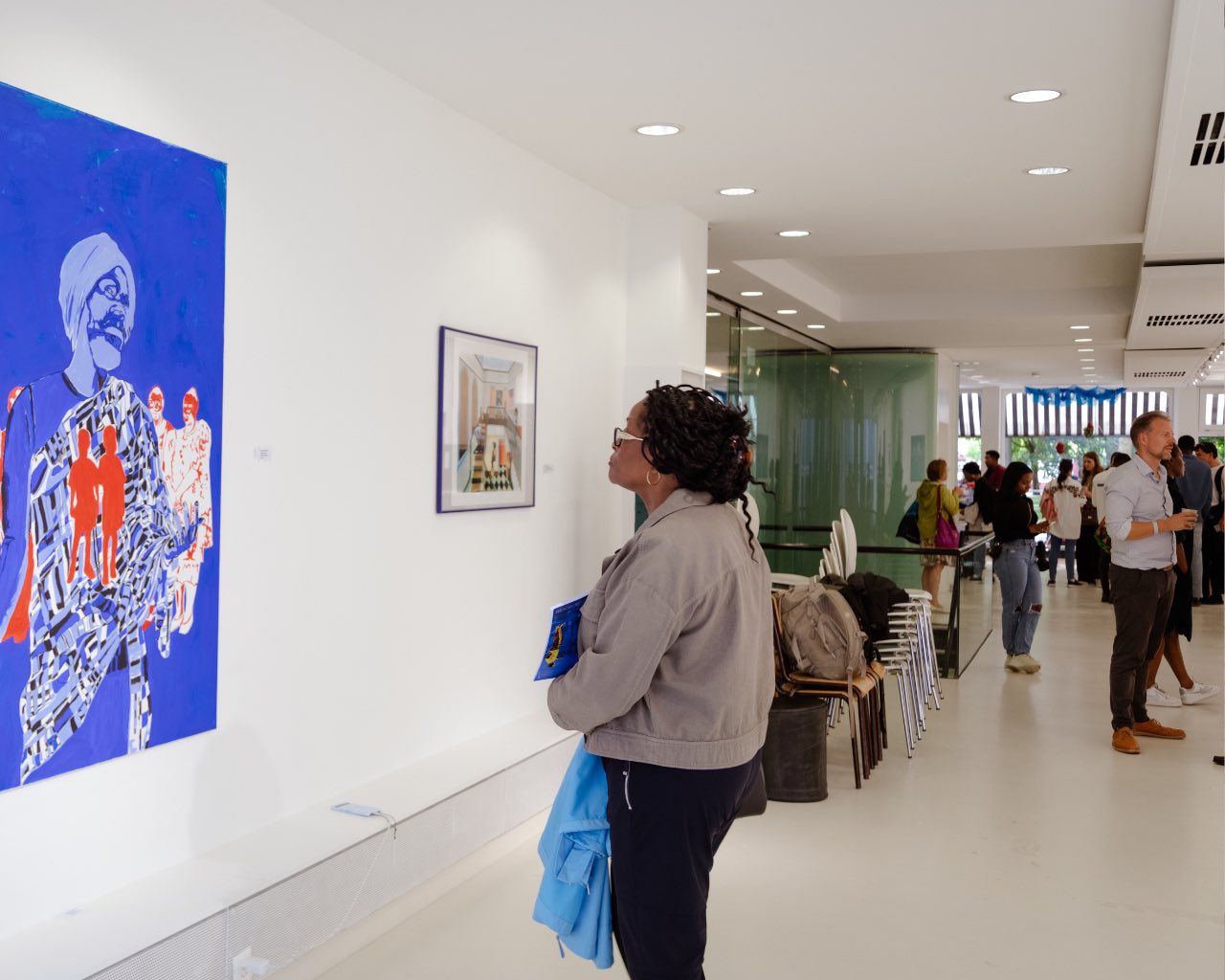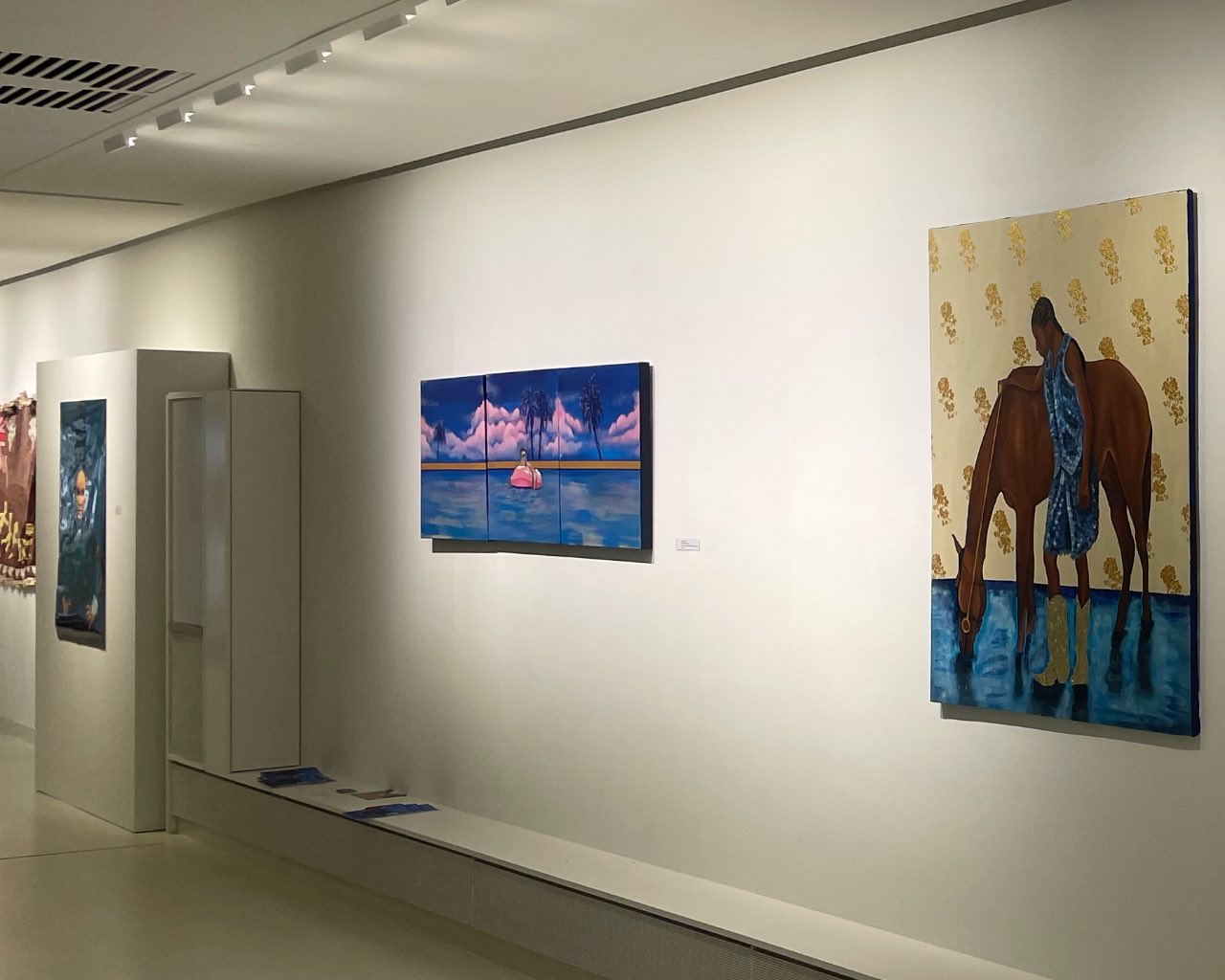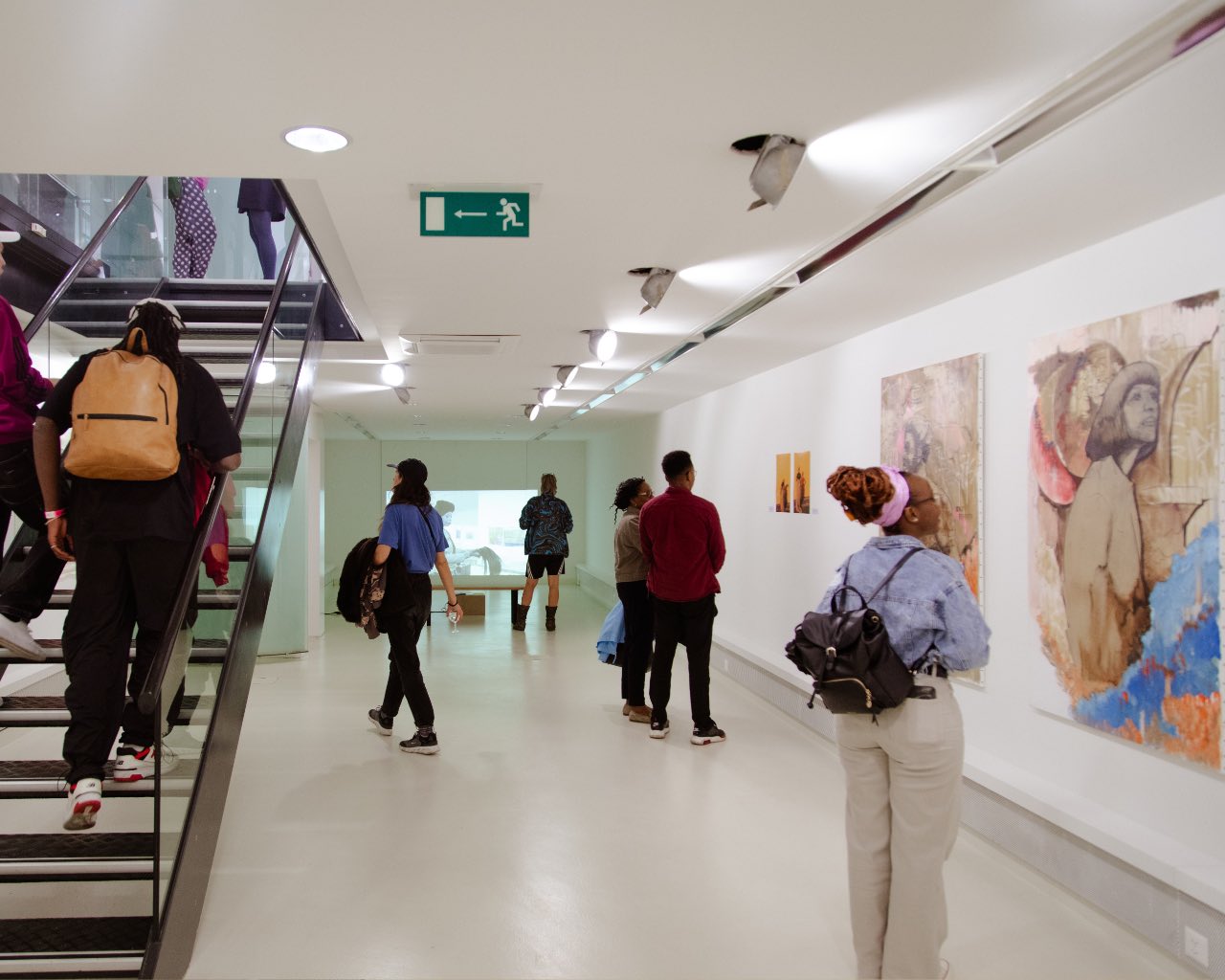INTRODUCTION
The traces of our lives are made up of memories that connect us to the source.
“[W]Here Now” reflects on the role of water as a conduit to the essence of our lives. This water constantly flows to map the pathways of our identities and remind us that we all come from somewhere.
Water is a vessel and connection to the source of all life that carries our stories, histories, and power. But where do we go to remember? And how do we know the importance of the importance of things we are re-membering? Because not all memories come from us, but a collective and generational pool of experience.
Our exhibition space becomes this site of memory where we conjure up what is already in us to better understand our place in the world.
Like Toni Morrison puts it –– all water has perfect memory and etched within us all are rivers, lakes, and seas that are trying to get back where they were – The source.
Just like water our artists are mapping out and activating different memories through creating. Neither time nor centuries of oppression have been, and can erase Africans’ true heritage. We’ll always find a way.
DATES: 11 - 17 June OPEN DAILY: 10 - 6PM
“[W]Here Now” reflects on the role of water as a conduit to the essence of our lives. This water constantly flows to map the pathways of our identities and remind us that we all come from somewhere.
Water is a vessel and connection to the source of all life that carries our stories, histories, and power. But where do we go to remember? And how do we know the importance of the importance of things we are re-membering? Because not all memories come from us, but a collective and generational pool of experience.
Our exhibition space becomes this site of memory where we conjure up what is already in us to better understand our place in the world.
Like Toni Morrison puts it –– all water has perfect memory and etched within us all are rivers, lakes, and seas that are trying to get back where they were – The source.
Just like water our artists are mapping out and activating different memories through creating. Neither time nor centuries of oppression have been, and can erase Africans’ true heritage. We’ll always find a way.
DATES: 11 - 17 June OPEN DAILY: 10 - 6PM




KWAKU OPOKU
History of self, culture & longing for self-understanding are some main driving factors for Kwaku Opoku’s work. Through countless conversations and interactions with nature and his immediate surroundings, he often curates and creates a slew of experiments that help get him close to this longing for self-understanding.
In the last 12 years of his life, Kwaku had battled a neurological condition that further pushed him to confront identity in his work. This particular experience developed a deep investigative mindset. Traces of this way of thinking can be seen in how he fragments and dissects portraits in pieces like ScreeNkrumah and in films he’s worked on like Free Dome. This same deep investigative approach is very evident in all work Kwaku creates.
He is constantly in conversation with nature to find answers and solutions to almost any problem. In collaboration with Small Hype, he has spent the last three years engaging with a deteriorating wetland in his hometown, Tema. The goal here is to replant and rebuild the wetland’s biological character. This project, dubbed We Have Decided, has developed many projects like Trash-ID. Trash-ID explores the harmful effects and overpopulation of black polythene bags in his hometown.
In the last 12 years of his life, Kwaku had battled a neurological condition that further pushed him to confront identity in his work. This particular experience developed a deep investigative mindset. Traces of this way of thinking can be seen in how he fragments and dissects portraits in pieces like ScreeNkrumah and in films he’s worked on like Free Dome. This same deep investigative approach is very evident in all work Kwaku creates.
He is constantly in conversation with nature to find answers and solutions to almost any problem. In collaboration with Small Hype, he has spent the last three years engaging with a deteriorating wetland in his hometown, Tema. The goal here is to replant and rebuild the wetland’s biological character. This project, dubbed We Have Decided, has developed many projects like Trash-ID. Trash-ID explores the harmful effects and overpopulation of black polythene bags in his hometown.


